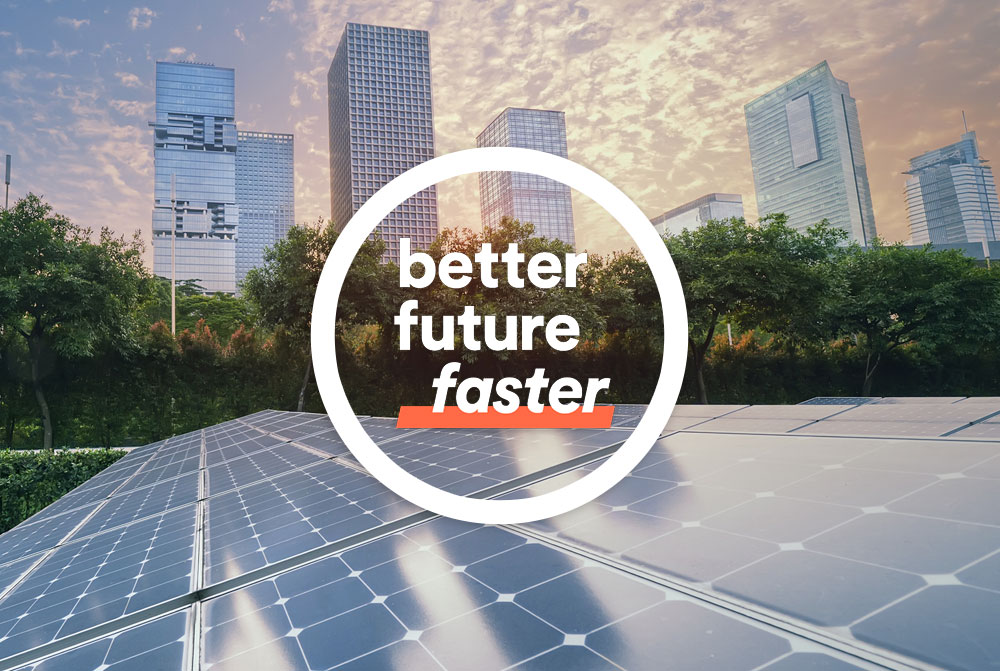Zero-Carbon Transition: Latest signals of change (31.07.2020)
The We Mean Business coalition
Here are just some of the signals of change from the past week, demonstrating the transition to a resilient and inclusive zero-carbon future remains underway.
Zero-Carbon Economy
The UK’s largest pension fund, covering millions of pensions, is to ban investments in any companies involved in coal mining, oil from tar sands and arctic drilling. Deutsche Bank has committed to stop doing business worldwide with the companies most exposed to coal mining by 2025 at the latest. And Bank of America has added its name to the growing list of US banks committing to increase disclosures about how their lending activities contribute to global warming.
Zero-Carbon Energy
One of Taiwan’s biggest companies, TSMC, has committed to source 100% renewable electricity globally as part of the Climate Group’s RE100, along with other new joiners including French apparel company Kering and one of the largest office furniture manufacturers HNI Corporation. The Japan Wind Power Association has unveiled plans to expand the country’s offshore wind power installed capacity to 10 GW in 2030 and 30-45 GW in 2040. Bangladesh’s power minister has said the country is planning to “review” 90% of its planned coal power pipeline. Germany’s share of renewable power reached a record 50.2% for the first half of 2020. The state of New Mexico has approved the replacement of the San Juan coal plant with 100% renewable capacity. A group of more than thirty companies, including Unilever and Edison International, have signed a letter to Congress, urging the adoption of clean energy policies in the US COVID-19 recovery package. A consortium of Shell and Eneco has won a 759 MW wind power tender in the Netherlands. The world’s largest nuclear fusion project has begun its five-year assembly phase in France. And UK grid operator National Grid said the country’s electricity system could reach negative emissions by as early as 2033, with the help of carbon capture.
Zero-Carbon Transport
The number of companies committed to accelerating the transition to electric vehicles (EVs) with the Climate Group’s EV100 has surpassed 80, with new joiners including UK fleet operators Fleet Alliance Ltd and Ogilvie. BMW has committed to reduce CO2 output per car by at least a third by 2030 and plans to make an electric version of its 5 Series model. Peugeot CEO Carlos Tavares has urged the auto industry to drive down the cost of EVs. Hyundai is switching gears away from hydrogen powered cars to EVs – aiming to sell 1 million EVs a year by 2025. UK bus company First Group plans to transition its entire 5,000 fleet to zero-emission vehicles by 2035. Australian ocean freight terminal GeelongPort has had its science-based target approved. A new study predicts that 42% of new cars sold in Europe will be battery-powered by the end of the decade. And UK Prime Minister Boris Johnson has launched a £2 billion ‘cycling revolution’.
Zero-Carbon Built Environment & Industry
Brazil’s largest aluminium producer Companhia Brasileira de Aluminio has committed to setting a science-based target aligned with the Business Ambition for 1.5ºC campaign, while French chemical maker Arkema has committed to set a science-based target. Ireland’s building materials company Kingspan Group has joined the Business Ambition for 1.5ºC campaign, while European Metal Recycling Ltd has joined both RE100 and EV100.
Zero-Carbon Land Use & Natural Climate Solutions
Nordea Asset Management has removed Brazilian meat processor JBS from its portfolio due to the company’s links with deforestation in the Amazon. The number of food and drink production companies with approved science-based targets is increasing, with Chilie’s Avícola Coliumo, Italy’s Barilla G.R. Fratelli and Hong Kong’s Swire Coca-Cola Limited all seeing their targets approved this week, along with restaurant chain operator Nando’s Chicken Land Limited. Nando’s is also trialing eco-friendly chicken feed including algae and insects.

